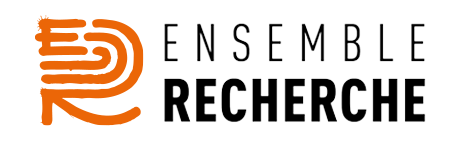The musicians of the ensemble recherche have been offering occasional master courses at German and international music colleges for about 20 years now, and give master classes in collaboration with a variety of institutes, e.g. the Goethe Institute. Both instrumentalists and composers are taught in these projects.
There is great demand from young composers, and the ensemble recherche wants to set up its own programme for this professional group as part of the Baden-Württemberg Ensemble Academy Freiburg (BWEAF). The positive experiences gained over time will be consolidated in our planning for this. We can also react to negative aspects: all participants, for example, found the limited time available for master courses, generally restricted to a few days, burdensome and unsatisfactory. The young composers’ questions could not be answered with the desired comprehensiveness, there was insufficient time to try out technical and acoustic possibilities, and interpretative subtleties could often not be taken into account – this left participants with an unfinished feeling.
In this regard, we believe that a comparison of aesthetic positions, compositional ‘schools’, would be particularly interesting. This would allow the composition students to learn to verbalise their musical thinking and, if necessary, defend their personal way of thinking and working. This point can only be considered within the framework of a university course, but is enormously important after graduation; ultimately what matters is to be able to inform and convince the artistic managers of ensembles and orchestras, as well as event organisers.
The aim of all courses led by the ensemble recherche is the step into the public arena. The possibility of one’s own piece being selected for the closing evening concert is a great motivation. One’s presentation of the piece can be practiced in front of other course participants in a brief introduction, verbally supported by a member of the ensemble recherche, before making this address to the public. A long-term ‘roadmap’ can be drawn from these comments. Whereby we particularly want to emphasise that, during selection of the participants, great value is placed on particularly contrasting aesthetic positions. The condition being that two classes clash. Their Professors, of course, are also involved in this. At the end of the roughly one-year-long project phase we will see whether there are still two different stand-alone classes or whether there are areas in which they have more in common than was expected. Both situations are acceptable – there is no incorrect position.



